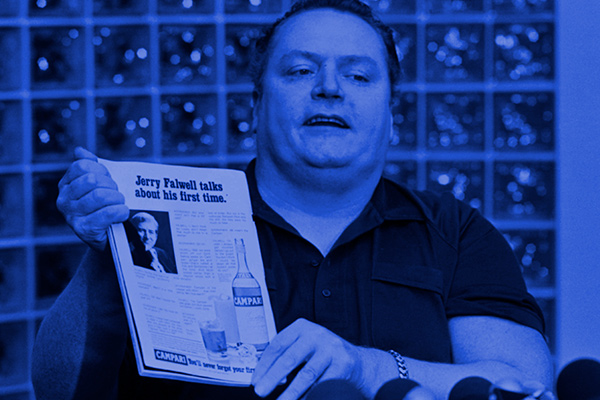Case Summary:
Hustler v. Falwell (1988)
Intentional Infliction of Emotional Distress

Traditionally, states have provided a way for a person who has been intentionally emotionally harmed by another to recover damages from the person who caused that harm. That traditional rule hit a First Amendment limit when nationally known preacher Jerry Falwell sued Hustler Magazine over a cartoon published in the magazine. The cartoon portrayed the preacher’s “first time” as a drunken, incestuous relationship with his mother in an outhouse. Falwell sued Hustler Magazine saying that the publication was so outrageous as to have intentionally caused him emotional distress, which he argued entitled him to damages from Hustler Magazine to compensate him. Falwell convinced a jury but lost at the US Supreme Court. The Supreme Court determined that the First Amendment limited the state’s “authority to protect its citizens from the intentional infliction of emotional distress.” The limit? When cause of the “distress” is speech or debate about a public figure, the plaintiff cannot rely solely on the traditional state test of “outrageousness.”
In a unanimous opinion, written by Justice William Rehnquist, the court addressed the question of whether “a public figure may recover damages for emotional harm caused by the publication of an ad parody offensive to him, and doubtless gross and repugnant in the eyes of most.” Falwell argued that because the parody was particularly outrageous, it should not be subject to the same level of scrutiny given to other speech about public figures. The court disagreed, stating that a public figure cannot recover damages for emotional distress “without showing in addition that the publication contains a false statement of fact which was made with ‘actual malice,’ i.e., with knowledge that the statement was false or with reckless disregard as to whether or not it was true.” Otherwise, any judgments would be inherently subjective, based on “the jurors’ tastes or views,” and have a negative effect on the future use of political cartoons and satire in public discourse.
Additional Resources